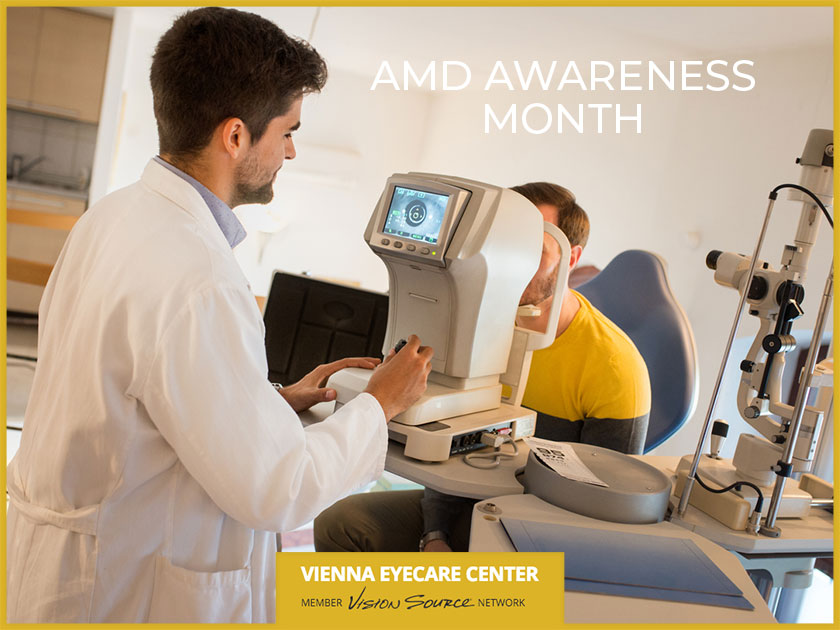Age-related macular degeneration (AMD) is a leading cause of vision loss in individuals older than 50. This eye condition affects the macula, the part of the retina responsible for central vision. People with AMD aren’t totally blind, and their peripheral vision remains stable. However, they find it hard to see objects directly in front of them.

Despite being a common eye condition in older adults, many myths still surround AMD. Your local eye care provider debunks some of them below.
MYTH1 : AMD Will Always Lead to Blindness
Your macula is the part of your eye that allows you to recognize faces and read. While AMD affects your central vision, it won’t lead to complete blindness. In fact, patients with later stages of AMD still have functional peripheral vision. Over time, they simply learn how to make the most of their peripheral vision.
MYTH 2: The Early Signs of AMD Are Obvious
The truth is most people with early AMD won’t even know they have it until it progresses. At first, the vision changes are barely noticeable. Some patients don’t even experience symptoms at all. This is because AMD tends to cause symptoms in the later stages when significant damage has already occurred. Seeing your eye doctor regularly is essential when it comes to early detection and treatment of AMD, especially if you are at risk.
MYTH 3: AMD-Related Vision Loss Is Reversible
There’s still no cure for AMD, and the vision loss it causes cannot be reversed. Studies have shown that taking certain supplements can help slow the progression of the eye condition, but it doesn’t reverse vision loss that’s already occurred. Fortunately, lifestyle changes can help lower the risk of advanced AMD. Some good habits you can start include exercising regularly, eating balanced meals and wearing eye protection outdoors.
Seeing your optometrist or eye doctor regularly helps in catching and treating AMD in its early stages. At Vienna Eyecare Center, we offer a wide range of eye care products and services designed to fit your vision needs. Call us at (703) 938-7633 or fill out our contact form to schedule an appointment. We assist patients in and around Fairfax, VA.












